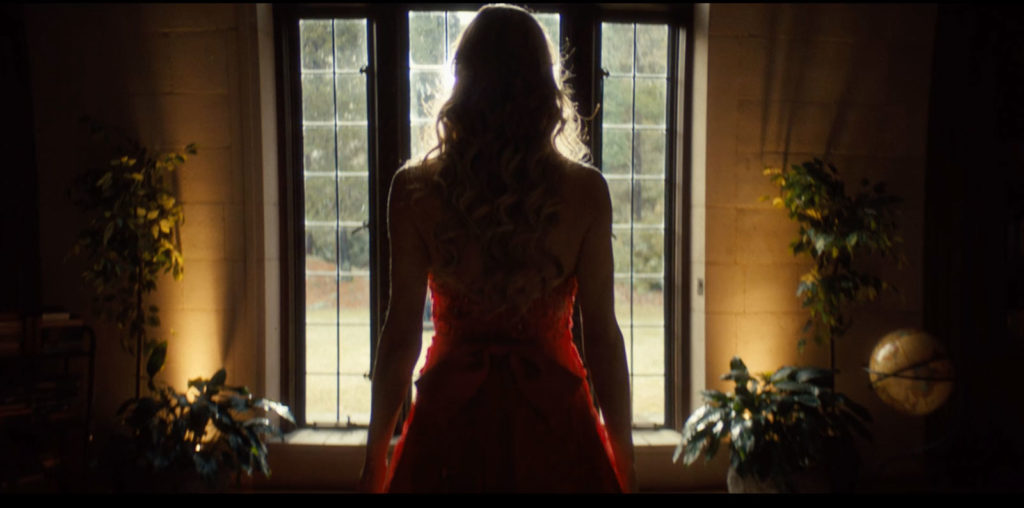
Don’t be afraid. Sujewa Ekanayake is not an werewolf, but he may have an obsession with the classic movie monster.
Ekanayake was born in Sri Lanka, and moved to the US in his early teens and has been making films since 1992. Currently Sujewa is a Brooklyn-based indie filmmaker who has made a broad range of films including Fresh Coffee (1992), Wild Diner (1999), Capital Heartbreak & Sweetness: 17 DC Poets (2001), Date Number One (2006), Indie Film Blogger Road Trip (2009), Breakthrough Weekend (2014), and his latest, Werewolf Ninja Philosopher (2018), which is getting a theatrical release. Ekanayake’s DIY Filmmaker blog has been one of the top blogs for indies promoting multi-ethnic filmmaking, new talent, and self-sufficiency as a useful practice for indie filmmakers.
He spoke with Film Threat as he continues to promote his latest work.
Is there a moment you can identify where you thought to yourself, “I’m going to make movies when I grow up”?
I decided to become a filmmaker around 18-19 years of age I think. Spike Lee’s career and work, also the book Feature Filmmaking At Used Car Prices by Rick Schmidt, early Jim Jarmusch movies all played a major role in my decision. And at that time, early 1990s in the US, there wasn’t a lot of ethnic diversity in filmmaking – so I thought I might be able to add some interesting things to the conversation – since I am from Sri Lanka and have a unique set of experiences and a unique view point.

“And at that time, early 1990s in the US, there wasn’t a lot of ethnic diversity in filmmaking – so I thought I might be able to add some interesting things to the conversation…”
How should success be measured for an independent filmmaker?
If the filmmaker is significantly happy with a work that they made, then that given project is a success. If the film connects with an audience – then that film is even more of a success.
Can you offer advice to other filmmakers about how to cope with reactions from the media and rejection from film festivals?
To be engaged in filmmaking work is a privilege reserved for comparatively very few people in the history of humanity and even in the current time frame – out of the 7 billion or so people on the planet. Rejection and failure is a big and important part of making movies. Embrace it as an athlete or any other artist – or maybe a ninja – would embrace failure as they train and develop a career or a body of work – learn from failures and move on. Also at this point in time filmmakers can work mostly outside of gatekeepers – so being turned down by places is not a major problem for indie filmmakers – do your own screenings and marketing, sales. Some critics – like Richard Brody – generally do interesting and useful work – so pay attention to what critics say but don’t let it stop you from making art.

“…filmmakers can work mostly outside of gatekeepers – so being turned down by places is not a major problem for indie filmmakers – do your own screenings and marketing, sales.”
A close friend is about to make their first independent feature. What is the one piece of advice you give your friend?
Let the actors do their work – don’t direct them too much. You and them can find the right way to bring characters to life if you let them work on it, go through their process. Also aim for contentment and happiness in life – organize your work so that you do not lose sight of those things.
What part of the filmmaking process do you find most rewarding?
I find all of filmmaking – from script to distribution – to be rewarding, interesting, and challenging. But my favorite part is watching the finished movie with an audience in a movie theater and seeing the audience responding properly – as intended – to the work. Watching people laugh at something you made – a funny scene for example – is a great feeling.

“Let the actors do their work – don’t direct them too much.”
What inspired the idea for Werewolf Ninja Philosopher? It has a similar feel to What We Do in the Shadows.
This is my eighth movie and there are several themes and subjects that I am interested in – lives of artists, life in the city – things like that. Those ideas plus working on Matt Zoller Seitz’s puppet sci-fi movie Space Rabbit lead me to looking into incorporating a fantastic character into my film world – and thus the werewolf character was born. Also I worked with the lead actor Art Shrian Tiwari – who did an excellent job – to bring the character to life in a way that would work well with the low key, minimalist type of movie I was making.
Why the choice to shoot black and white?
It felt like a good choice for this story. The movie is concerned with the art house film world, and it has noir and mystery elements. Plus New York City looked great in black and white at night.
What do you hope audiences take away from Werewolf Ninja Philosopher?
Hopefully some audiences will have a great time spending some time with the unusual lead character and his world. Also I hope they enjoy the excellent acting work by the cast – Kirsten Eileen Dwyer, Alia Lorae, Rachel Dixon, Pamela Rummel and others.

“There’s no secret – most indie filmmakers – being artists, have other revenue streams…”
Your film has been described as, “a deadpan, slow cinema, minimalist, black & white, NYC art/indie/DIY/underground werewolf noir comedy.” What challenges are presented when trying to market a film like that?
People who like early Jim Jarmusch movies – Stranger Than Paradise, Down By Law, also early Hal Hartley movies, also movies by Lav Diaz, Bella Tarr, Tarkovsky, Weerasethakul enjoy my movie a lot. I learned that by screening the movie and talking with audiences afterwards. So my marketing decisions are informed by that discovery. Also I try various approaches to see what works. Each film and filmmaker is unique – and marketing wise it is always a process of discovery.
How do you make a living as an indie filmmaker? What’s your secret?
There’s no secret – most indie filmmakers – being artists, have other revenue streams. I do various media projects for clients, also some sales work, and I try to keep my budgets as low as possible and I work with friends to make my projects happen. Advice from friends – such as the excellent and under-the-radar filmmaker Amir Motlagh, also significant support from filmmaker Paul Kyriazi – who has made some wild movies – including his new one Forbidden Power – were essential on the Werewolf project. Indie filmmakers should look at filmmakers like Jonas Mekas, Kevin Jerome Everson, even recent Godard for examples on how various filmmakers find ways to make a lot of work on a low budget. Thanks again for the interview Chris – it’s great to have a media outlet such as Film Threat be interested in real indie movies – makes life easier and better for indie filmmakers and the indie film community. The secret to success as an indie filmmaker is community engagement, support and help from friends.


